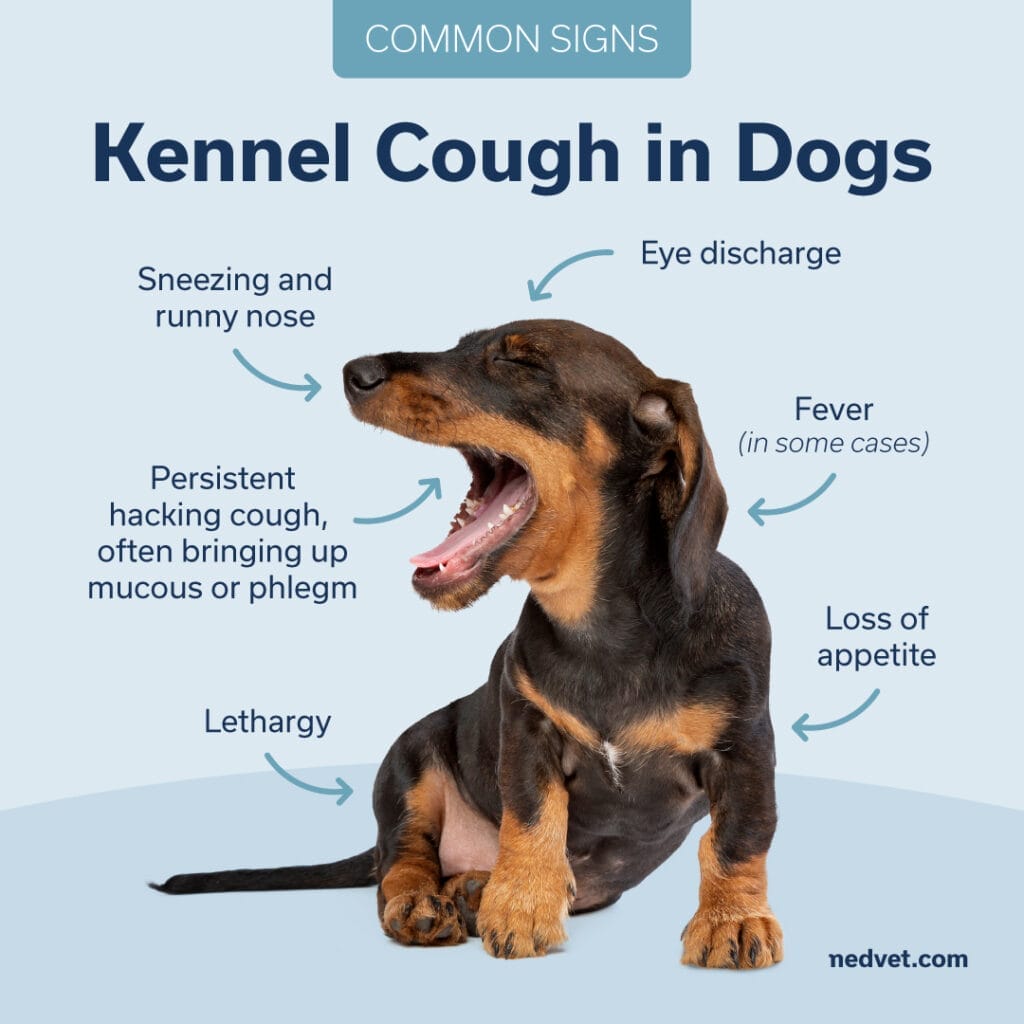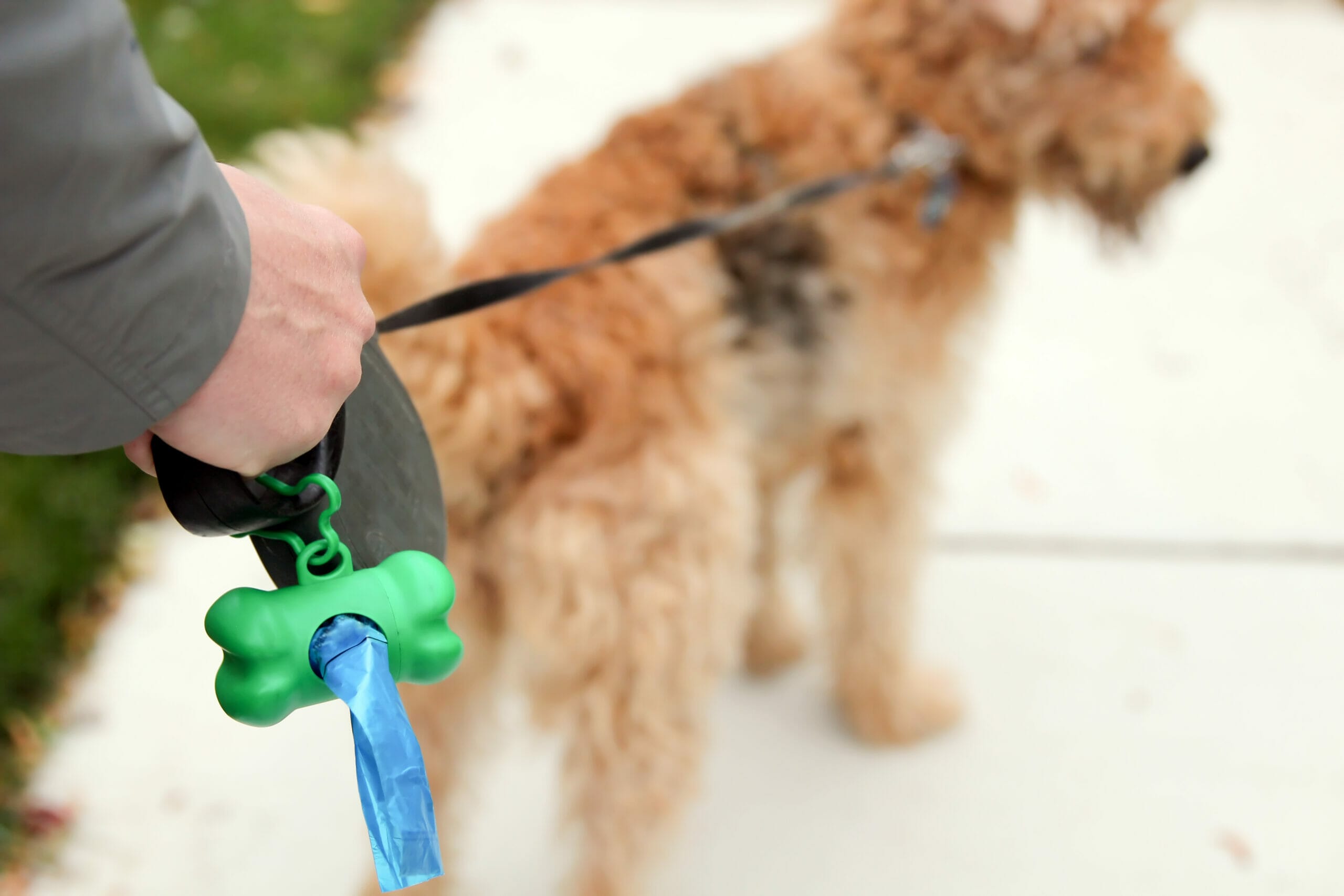
Six Things to Know About Kennel Cough in Dogs
Kennel cough is an infection of the upper respiratory tract in dogs that is characterized by a persistent, dry cough. Learn more.
Kennel cough, also known as canine infectious respiratory disease complex (CIRDC), is a highly contagious respiratory infection in dogs, similar to the common cold in humans. Our MedVet team shares six things you need to know about kennel cough to maximize your dog’s health.
1. Kennel Cough in Dogs is Highly Contagious
Kennel cough is an infection of the upper respiratory tract in dogs that is characterized by a persistent hacking cough, often bringing up mucous or phlegm. The condition is called “kennel cough” because it is commonly spread in environments where dogs are in close contact, such as kennels, dog parks, and grooming facilities.
2. Kennel Cough in Dogs Has Multiple Causes
Kennel cough is caused by a combination of viruses and bacteria. The most common culprits are the Bordetella bronchiseptica bacteria and the canine parainfluenza virus. Other viruses, such as canine adenovirus and canine distemper virus, can also contribute to the infection. These pathogens can be spread through direct contact with infected dogs, contaminated surfaces, or airborne droplets from coughing and sneezing. Because there are multiple causes of kennel cough in dogs, it can be challenging to prevent and treat.
3. Signs of Kennel Cough in Dogs
The most distinctive sign of kennel cough is a persistent hacking cough, often bringing up mucous or phlegm. Other signs can include:
- Sneezing
- Runny nose
- Eye discharge
- Lethargy
- Loss of appetite
- Fever (in some cases)
Signs usually appear within 3-10 days after exposure and can last for one to three weeks.

4. Treatment for Kennel Cough Depends on the Severity
In most cases, kennel cough is mild and resolves on its own. However, it can progress to more severe conditions, such as pneumonia, especially in puppies, senior dogs, or dogs with compromised immune systems.
The treatment for kennel cough depends on the severity of the signs and the overall health of the dog. In mild cases, supportive care at home may be sufficient. This can include:
- Rest: Keep your dog calm and avoid strenuous activities.
- Hydration: Ensure your dog has access to plenty of fresh water.
- Humidifiers: Using a humidifier can help soothe the throat and ease coughing.
- Cough Suppressants: Your family veterinarian may prescribe cough suppressants to reduce discomfort.
While kennel cough often resolves on its own, it is important to consult your family veterinarian if your dog exhibits any of the following signs:
- Persistent cough that does not improve within a week
- Difficulty breathing or rapid breathing
- Loss of appetite or weight loss
- Lethargy or weakness
- Fever
- Green or yellow nasal discharge
These signs may indicate a more severe infection or complications that require veterinary intervention. In more severe cases, your veterinarian may prescribe antibiotics to treat bacterial infections or anti-inflammatory medications to reduce swelling and discomfort.

5. Vaccination Against Kennel Cough
Several vaccines, including Bordetella, parainfluenza, and adenovirus, can protect dogs from pathogens that cause kennel cough. While it doesn’t guarantee absolute immunity, due to the diverse strains of viruses and bacteria involved, it substantially lowers the risk and lessens the severity of the infection.
Vaccination is especially important for dogs that often spend time in places with other dogs, like kennels, dog parks, grooming salons, and dog shows. By vaccinating your dog, you’re not only shielding them but also helping to curb the spread of infection among the broader canine population.
To maintain effective protection, regular booster shots are essential, as the immunity provided by the vaccine can diminish over time.
6. Ways to Prevent Kennel Cough in Dogs
Preventing kennel cough involves a combination of vaccination and good hygiene practices.
- Regularly clean and disinfect your dog’s living area, toys, and bowls to reduce the spread of pathogens.
- Avoid crowded environments to limit your dog’s exposure, especially if they are not vaccinated.
- Schedule regular check-ups with your family veterinarian to ensure your dog’s overall health and to detect any potential infections early.
- If your dog is diagnosed with kennel cough, keep them isolated from other dogs to prevent the spread of infection.

While kennel cough is a common and highly contagious respiratory infection in dogs, it is usually mild and can be treated. If you suspect your dog has kennel cough, contact your family veterinarian or visit a MedVet location for a proper diagnosis and treatment plan. Early intervention can help ensure a speedy recovery and minimize the risk of complications from kennel cough.
Learn more ways to keep your pets healthy and safe.
FAQs
What is kennel cough in dogs?
What is the treatment for kennel cough in dogs?
How can I prevent my dog from getting kennel cough?
Learn More
For ways to ensure your pet lives a happier, healthier life, visit our Pet Care Resources library.
Pet Care ResourcesContents
Learn More
For ways to ensure your pet lives a happier, healthier life, visit our Pet Care Resources library.
Pet Care Resources


